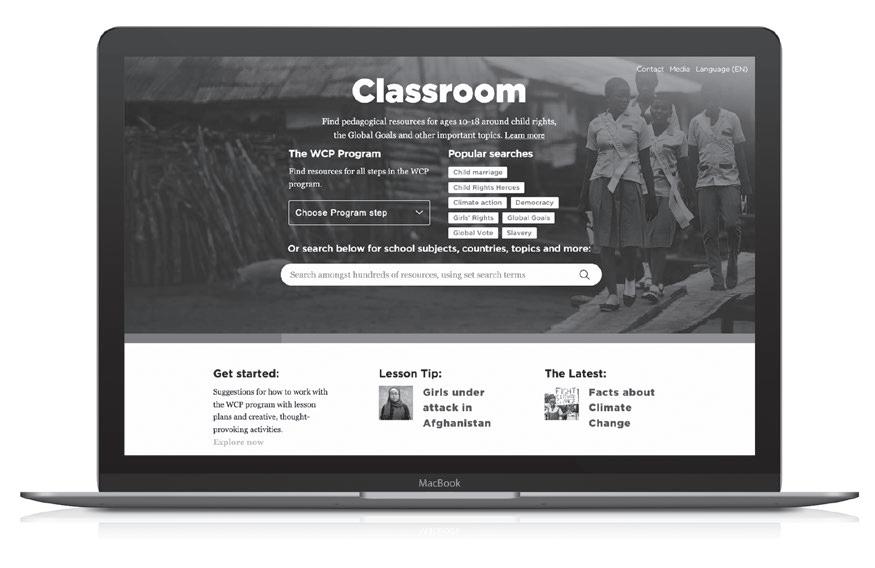
1 minute read
WCP in school
a balanced and respectful view of each country and its people.
Arts
The WCP Program gives lots of opportunities for creating art: posters, presentations and media of all sorts.
Language
The WCP Program provides lots of opportunities for reading, writing, speaking and listening, and developing critical thinking. The students can write their own stories, essays and plays, and make presentations and posters, inspired by the stories in The Globe
Social sciences
The heart of the WCP Program is child rights and children’s lives, issues that are important in all subjects but especially in social sciences and civic education. In the stories about Child Rights Heroes and Ambassadors you will find information about their countries and societies. It is important to also look at the positive aspects of the cultures you are studying, to give
Mathematics
Explore the world through numbers and statistics, for example using the fact sheet about children in your country and p. 10–11 in The Globe These indicate how your country and the whole world are living up to the UN Convention on the Rights of the Child and what must be done to achieve the Global Goals for Sustainable Development.
world’s most pressing challenges, for example, access to food and clean water, climate change, energy sources, housing and health. Read about the environment and climate change on p. 44–47 in The Globe.
Corporal punishment
Science
Explore how science has an impact on us both positively and negatively, and what solutions are available for the
Every year, children in The Globe tell stories of being beaten at school and at home. Despite the fact that corporal punishment is a violation of children’s rights, only 64 countries in the world have banned all forms of physical punishment of children. Article 19 of the UN Convention on the Rights of the Child says that all children have the right to protection from all forms of violence, neglect, mistreatment and abuse. Despite this, every year 40 million children are beaten so badly that they need medical care. Ask your students to discuss corporal punishment, taking children’s stories in The Globe and their own experiences as a starting point. Talk about how things are in your country. Is there a law against hitting children? Ask the students to think about how they will treat children once they are adults.










